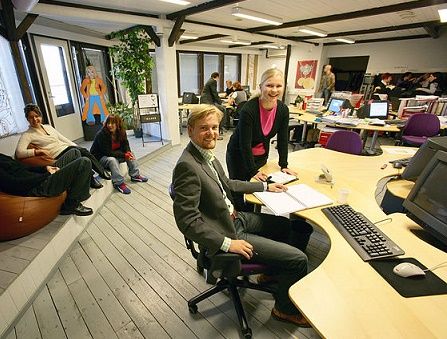Danish business is booming if you believe the stats. But there is never any shortage of saboteurs, and the current horizon is no different, with Donald Trump, hackers and the Danish government all doing their best to spoil the party.
Astonishing growth
Let’s start with the good news: the service sector has enjoyed a brilliant decade, generating 30,000 new full-time jobs since 2009, according to Dansk Industri.
Its growth rate of 38 percent compared with just a 2 percent average across all Danish business sectors.
Private health bonanza
The biggest feeder is ‘other operational services’ – mainly companies offering private health services, such as hospitals, midwives, home nurses and fertility clinics.
The clinics have proved particularly popular with lesbians and single women living abroad, who since a change in legislation in 2007 have been able to receive fertility treatment in Denmark.
US rethink on Iran
Traditional exports, however, are under pressure – not least from the US decision to withdraw from the atomic agreement with Iran and reimpose sanctions, which will cost Denmark 4 to 5 billion kroner a year.
The food and pharma sectors will be especially hard-hit, along with wind energy, water tech and fish farming. Maersk has already confirmed it will wind down its activities in Iran.
Hacking fightback
The shipper, of course, knows better than any company how harmful hackers can be, so it will be buoyed in a bolting the stable door kind of way to learn that the private enterprise Industriens Fond has earmarked 100 million kroner to strengthening IT security across the nation.
Not to be outdone, the government has stumped up 1.5 billion kroner, outlining 25 initiatives, including the opening of a new cyber centre that will be manned 24/7.
Relocation pitfalls
But elsewhere, the government is doing its best to torpedo growth with its bid to relocate governmental jobs from the capital to the regions in order to achieve an equitable distribution.
The media has highlighted how the relocation of the Miljøstyrelsen environmental protection agency from Copenhagen to Odense next year could create delays in its output.
Many of its experts and scientists are not making the jump, with just over half of the 800 workforce deciding not to move.















